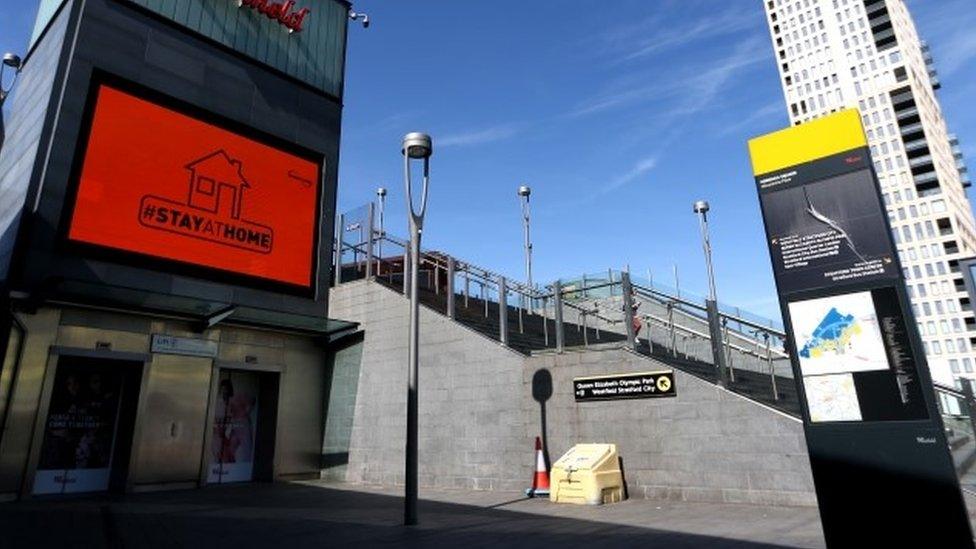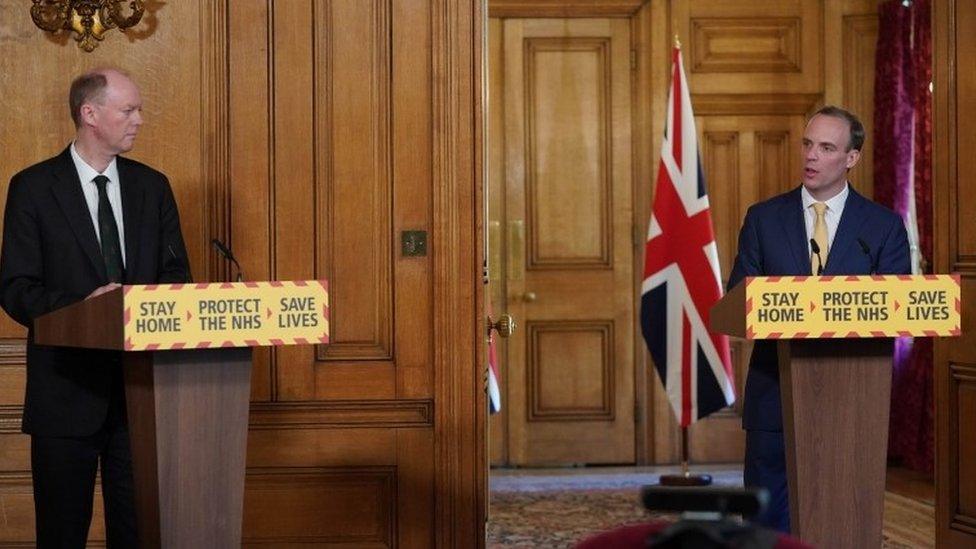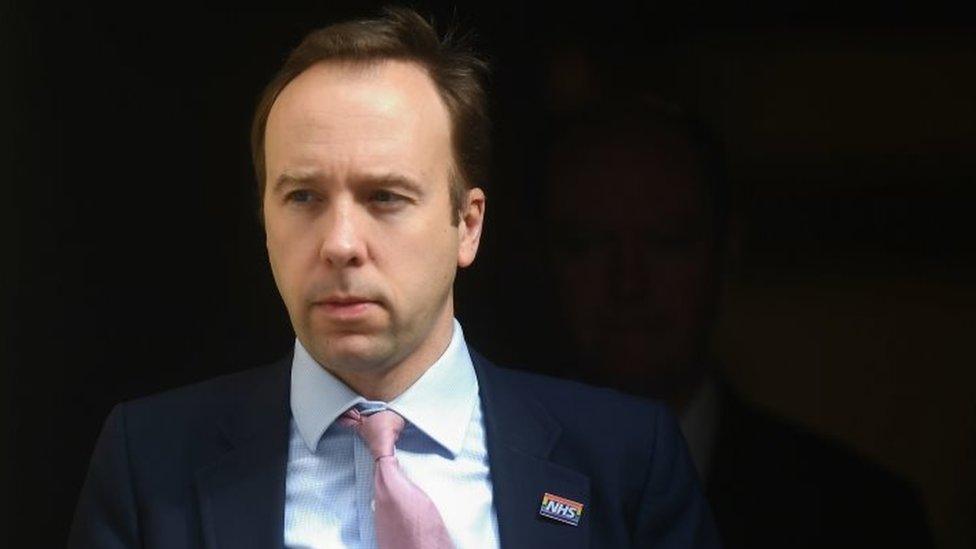Coronavirus: Don't expect too much from lockdown review
- Published

"I can assure you, we will keep these restrictions under constant review. We will look again in three weeks, and relax them if the evidence shows we are able to."
That's how, on 23 March, the prime minister presented the possible timetable for the limits the government was placing on our daily lives to protect our health during the coronavirus outbreak.
The commitment was written into the emergency laws that were rushed through Parliament before it shut up shop.
That formalised the promise, saying that the health secretary has to "review the need for restrictions and requirements" every 21 days, and it has to happen the first time by 16 April.
Why, then, did the foreign secretary say on Tuesday something that sounded rather different?
Dominic Raab, who is standing in for the prime minister while he is in hospital, said: "We will take any review once we've got the evidence that the measures are working and having the kind of impact taking us past the peak which means that they can be responsibly done, we're not at that stage yet."
Does that mean there won't be a review after all? Erm, no.
There are three things going on here.

Chris Whitty and Dominic Raab sounded a cautious note
First off, the "review" might sound like a formal, grand requirement and make you think of something like the recent review of HS2, or a government spending review, which is a huge exercise that slices up massive public budgets for years to come.
But while the length of the lockdown is, of course, of massive public interest to everyone, the three week "review" in these circumstances is more like a check-up than a huge piece of work.
There is no requirement even on ministers to publish the way they have made the decision.
And the government's senior scientists, and politicians including the Welsh first minister, have made it clear the chances of the restrictions being lifted altogether in the next week are slim to none.
Professor Chris Whitty, the most senior government medic, even said on Monday that it would be a "mistake" to consider exit strategies from lockdown right now.
'Important week'
At Wednesday's Downing Street briefing, Chancellor Rishi Sunak said the government was committed to a review of restrictions "based on the evidence and the data" provided.
That data, from the Scientific Advisory Group for Emergencies (SAGE), would "only be available next week," he added.
Asked about the Welsh first minister's announcement that lockdown measures would continue beyond next week, the Chancellor said the government's emergency response committee Cobra would meet on Thursday "to talk about the approach to the review".
"Rather than speculate about the future we should focus on the here and now," Mr Sunak stressed, adding that the "unequivocal" advice remained for people to stay at home in order for the UK to "get to the other side of the peak" of cases.
The government's Deputy Chief Scientific Adviser Angela McLean said it was "a really important week… we're all watching what happens".

The law says the health secretary must carry out the review
In truth, even when the prime minister suggested the restrictions might be lifted at the point of three weeks that was an optimistic gloss on one element of a serious statement full of difficult news.
And government insiders suggest that they were always looking at a looser timetable - and it's likely that the current set of restrictions will be in place for at least another fortnight and quite possibly well beyond that.
Technically in charge
Secondly, there has been more attention on what the decision around the "review" will be, because it is the first overt decision of this crisis that the prime minister may be absent for.
The signs from St Thomas' Hospital on Wednesday were more positive, but Boris Johnson is still in intensive care.
So however and whenever ministers are ready formally to say that the limits on our lives will stay in place for now, it may be Dominic Raab technically in charge at that stage.
He does have the power to make that call - in fact, the legislation says the review should be carried out by the health secretary.
Economic anxieties
Lastly though, there are the beginnings of conversations in government about how the restrictions could be lifted in the medium term.
There is a hunger to do so, amid deep anxieties about the economy.
Nearly a million people have signed up for universal credit in the past fortnight, and there are stories of businesses closing everywhere.
Simply, the longer the lockdown goes on, the more it hurts the nation's wallet.
The limits are there to protect people's health, understandably, but that comes with a massive price.
And there are tensions between the various parts of government about what is best, with individual departments arguing from different perspectives.
Clear priority
There are discussions about whether it's possible to reduce the restrictions step-by-step, to open up parts of the economy, or even some parts of the country at different stages.
There are ideas, too, about lifting limits on some parts of the population but keeping the most vulnerable protected.
We have not yet reached the peak of this disease, and in this emergency situation decisions are being made first and foremost to protect people's health.
The priority is clear - the government is responding to the immediate intense emergency.
But once, hopefully soon, the peak of the disease has passed, softening the social and economic costs of the lockdown will move up the agenda.
The next set of decisions and dilemmas for the government could be even more complex.
